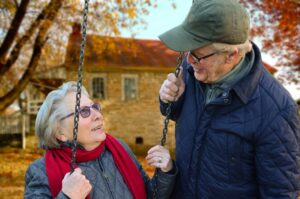Group therapy for addiction treatment
There are many approaches used in the rehabilitation setting. In 2019/20, there were 270,705 adults in contact with drug and alcohol services in the UK. (1)
With so many people seeking support and humans being such complex creatures, there needs to be a variety of ways to regain control of addiction.
Group therapy is a key element of rehabilitation support.
Group therapy; what is it?

Group therapy is a brilliant approach to supporting people who have a similar diagnosis to heal. An experienced and qualified practitioner leads the group. They guide the group through various discussions to facilitate change.
Group therapy happens daily at inpatient rehab clinics. However, in outpatient environments, groups tend to occur on a weekly basis.
Most group sessions host 6-12 people. In the substance misuse field, groups are usually around 10-12 people. They offer a space of support, encouragement, confrontation around denial, and learning.
Depending on the group and who is holding it, some will be “open”, meaning new members can join at any point.
Others are closed, which means the group is only open to the people who originally signed up. There tends to be a set number of sessions in the group therapy format, perhaps six sessions over six weeks or something similar.
Groups might focus on individuals of a group, on how group members interact, or on the group as an entirety.
Please call our 24-Hour Helpline for Advice and Support: 0800 88 66 86
Types of group therapy

Where a person is in the stages of change addiction model (Prochaska and DiClemente 1984) influences which group type will be most appropriate for them.
The stages of change include:
- Precontemplation
- Contemplation
- Preparation
- Action
- Maintenance
- Recurrence
A person in recovery is best supported by a team of professionals who specialise in addiction and support them in each stage with the most appropriate type of group.
For example, people in the contemplation stage of change who are thinking about recovery will require different input from those in the action stage who have just started to reduce or stop using substances.
It’s got to be pointed out that quite often, wherever the group of people are on the cycle of change, the group leader might adopt approaches from the differing types of groups.
So they might, for instance, try some psycho-educational alongside support approaches in one session.
Research reveals five types of groups that effectively treat people with addictions. (2)
Cognitive-behavioural groups

These groups are often employed at the early stages of change. They give clients a psychological framework for understanding addiction as arising from learned behaviour.
This behaviour can be changed when a person avoids certain triggers and learns coping strategies.
Clients are supported to understand the factors that drive addiction; the genetic and physiological. As such, they come to understand their addiction as an illness.
It becomes clear what behaviours need to be avoided (all those that can lead to using substances).
Clients also learn that they can change their behaviours through changing thoughts and internal beliefs.
Interpersonal process groups

The interpersonal process group is really about how social constructions affect the individual.
For example, a person has attachments and is a part of a family, a community, or a nation.
This approach addresses healing by looking at the individual’s processes and how the person relates to people in the external world.
It also recognises the importance of psychodynamic influences on a person’s behaviours.
There can, at any one time, be conflicting forces within a person’s mind, and this can alter how a person acts.
The facilitator helps clients to understand the developmental process in early life and how this impacts adulthood.
Please call our 24-Hour Helpline: 0800 88 66 86
Psycho-educational groups

The psycho-educational group aims to educate people on how substances affect their lives, relationships, and health.
It looks at how behaviours change and what consequences result from drug and alcohol use. It focuses on the psychological, behavioural, and medical.
It tends to be very structured, and materials such as videos or streaming lectures might be used to aid education.
The group aims to help the clients grow in self-awareness and equip them with information about the process of change so they’re better prepared to manage their behaviours.
This approach can be especially useful for people in the early stages of change.
Please call our 24-Hour Helpline: 0800 88 66 86
Skills development groups

This type of group aims to equip people with the skills they need to remain abstinent.
People learn how to respond to triggers, how to refuse substances, and how to navigate through cravings.
As time goes on, learning might focus on stress and anger management or learning to practise grounding and self-compassion through practical exercises.
Many people with addictions won’t have had the opportunity to learn such skills, so for many, it’s an important learning space.
Support groups

Support groups understand how instrumental connection is in aiding long-term sobriety. Lifestyle changes are crucial to healing. Support groups help people to develop new lifestyle changes.
This is a place where people offer each other validation, acceptance, honesty and reflection, and support around change.
The group helps people to understand their thoughts and feelings. Self-care and self-compassion are developed.
People learn how to communicate more effectively, relate, and be open and honest.
This develops interpersonal skills and equips them for interactions in the outside world.
Other therapy groups include:
- Relapse prevention treatment groups
- The communal and culturally specific treatment group
- Expressive groups
Please call our 24-Hour Helpline: 0800 88 66 86
Are 12 Step groups considered group therapy?

12 Step groups are not therapy groups. They’re peer support groups.
People who are further along the recovery journey lead the group. They aren’t led by a trained professional.
Also, any number of people might turn up to a 12 Step group; they aren’t limited, whereas group therapy usually has limited spaces.
12 Step groups are also free to attend, while group therapy tends to feature within private rehab clinics, which are privately funded.
Please call our 24-Hour Helpline for Advice and Support: 0800 88 66 86
Who leads a group therapy session?

The person leading a therapy-based group must be trained and qualified to do so. The following types of professionals might lead a therapy group for people with addictions:
- Psychotherapists
- Social workers
- Psychologists
- Psychiatrists
- Counsellors
- Substance abuse workers
It’s essential that the person leading the group offers particular skills and aptitudes. These include:
- Empathy
- Active listening
- Consistency and reliability
- Safety
- Knowledge
- Project self-assurance
- Creativity
- Ethical practice
- Trust
- Humour
- The skill to reinforce rules
Please call our 24-Hour Helpline: 0800 88 66 86
Confidentiality

All group therapy sessions need to offer safety. Those who take part are made aware of group rules and confidentiality agreements. They have to agree to honour these rules.
This might include not making contact with other members of the group outside of the group setting.
Why group therapy is instrumental in rehab programmes

Group therapy is a key part of rehabilitation programmes. It helps create bonds, and this type of support is really useful in assisting long-term recovery and abstinence goals.
There is also the fact that the group approach challenges the “isolation” aspect of addiction. So many people feel alone or as though they are different. Group therapy connects.
As well as this, it offers people the chance to develop social skills in a safe environment where people understand common struggles and difficulties.
Together, people are able to reflect on factors that influence a person’s healthy and unhealthy behaviours and can work through these.
It’s also an excellent space for people to combat depression and shame because, with others, they’re better able to develop self-compassion and understanding.
Finally, groups offer a space to gain inspiration from others and feel solidarity within the recovery experience.
The goals of group therapy

The main goals and skills developed in therapy are:
- Modelling healthy and unhealthy behaviours, so people grow in self-awareness
- Understanding addiction as a disease
- Learning how to approach recovery
- How to manage triggers and cravings
- How to handle relapse situations
- How to connect and reconnect to others
- Emotional support
- Developing communication and social skills
Topics discussed in groups around substance misuse

Group therapy topics might be suggested by the facilitator or by those in the group. Likely, a bit of both. Common therapy themes and discussions revolve around the following:
- Self-care
- Self-compassion
- Goal-setting
- Impulse control
- Relapse
- Stress and anger management
- Relationships
- Codependency
Please call our 24-Hour Helpline: 0800 88 66 86
Is group therapy suitable for me?

Some people might feel averse to group therapy as soon as they hear the term. But, first, it has to be stressed that people aren’t “forced” to talk.
In addiction and recovery, especially, the people in the group only have to share when they’re ready to.
That said, someone who is naturally extremely introverted might struggle, and some people need to go at their own pace rather than the group’s pace. Sometimes one-to-one therapy is more suited. It really depends on your needs.
There are some situations where group therapy isn’t appropriate for the person. In the following instances, group therapy would be inadvisable:
- Those who wouldn’t be able to maintain confidentiality
- Those in crisis
- People experiencing distressing symptoms
- Those lacking social skills or the ability to build relationships
- Those who experience extreme stress or anxiety around others
Contact the Rehab Recovery team on 0800 088 66 86 to find out where your nearest group therapy sessions are.
Our friendly call handlers will explain your options and will be happy to support a rehab referral where necessary.
References
[2] https://www.ncbi.nlm.nih.gov/books/NBK64214/
[3] https://www.ncbi.nlm.nih.gov/books/NBK64223/




